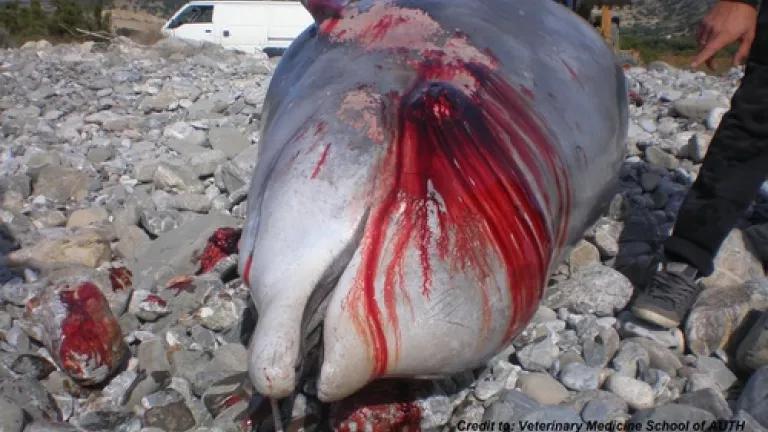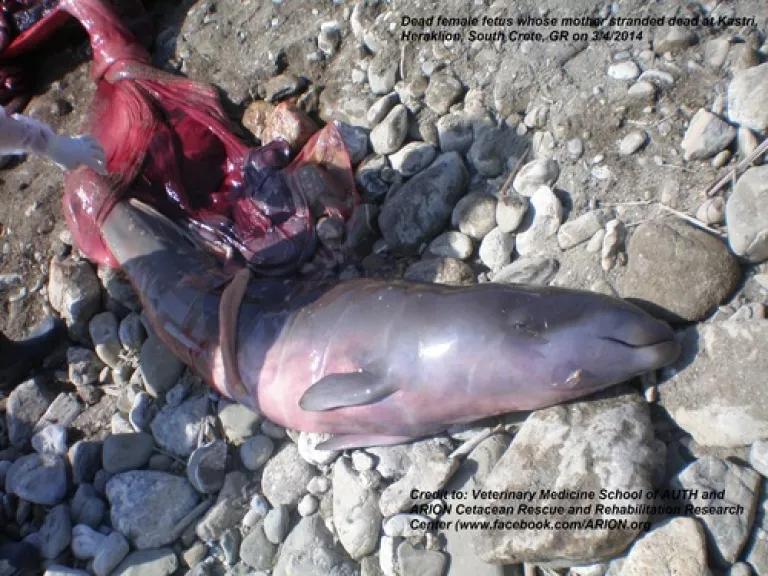
On the island of Crete, biologists have begun studying the bodies of whales that perished during the recent mass stranding.
They’ll be looking for tell-tale signs of sonar pathology: bleeding around the brain, lesions in organ tissue, and damage to the acoustic fats, a mass of tissue along a whale’s jawline that helps conduct sound to the ears. These injuries are analogous to those seen in severe cases of decompression sickness, or the bends. In humans, they’re associated with pain, disorientation, nervous and cardiovascular system dysfunction, and death.
That part of the investigation will take some weeks to unfold, depending as it does on a careful, specialized analysis of the brain, ears, and organ tissue, but some details of the gross examinations that were conducted on the beaches are already out.
Most horribly, investigators discovered that one of the stranded whales was pregnant with a female calf. The sight of this is just heartbreaking – a tragedy within a tragedy. (I’ve posted two photographs below of the mother and calf: please use caution.)
The loss of an unborn calf is also very bad news for conservation. Beaked whale moms don’t have many babies, tending to wait longer between pregnancies than some other marine mammals, and most beaked whale populations that have been studied are very small to begin with. In the wake of this disaster and the suite of other sonar-related strandings that preceded it, the region's biologists are concerned about the health of beaked whale populations off Greece.
To demand that the U.S. Navy protect whales during training, please go here. You can also call NOAA (202-482-3436) – the agency that is supposed to regulate the Navy – and ask that they enforce our marine mammal laws.

